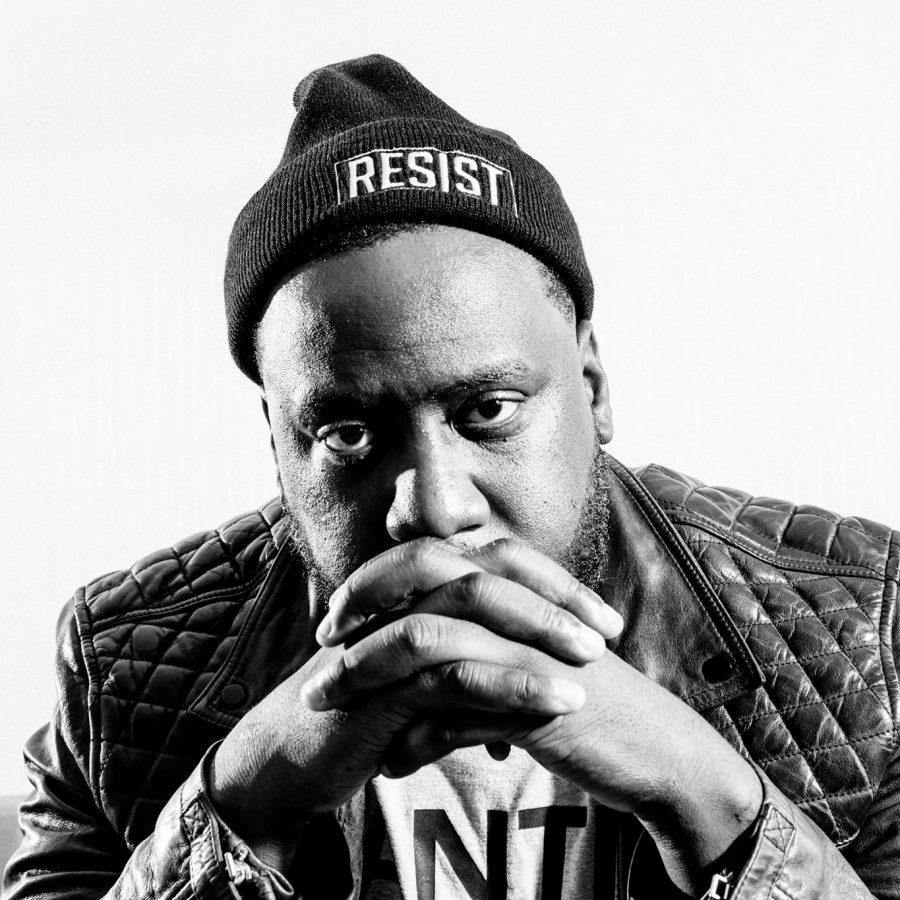Prolific producer, arranger, songwriter and jazz pianist Robert Glasper has certainly had a busy month. October not only saw the release of his Hip-Hop/Jazz fusion mixtape, “F-ck Yo Feelings,” which features the likes of Herbie Hancock, Denzel Curry and Rapsody, but was also the opening day of Glasper’s month-long residency at West Village’s famous jazz venue the Blue Note. Following in the footsteps of past signees like jazz pianists Chick Corea and Gene Harris, Glasper brings forth his own style of jazz fusion to the Blue Note this month — experimental, soulful and heavily influenced by rhythm and blues.
Spanning a total of 56 shows, the 28-day jazz extravaganza featured an assortment of illustrious guest artists ranging from Yasiin Bey (formerly Mos Def) and Talib Kweli of Hip-Hop duo BlackStar, to Grammy-winning jazz bassist and musical virtuoso Esperanza Spalding. Other guests included T3 of Slum Village (which formerly included producer, rapper and Hip-Hop legend J Dilla) and Robert Glasper Experiment bandmates Casey Benjamin and Chris Dave. Despite the combined star power of his guests, Glasper is no slouch either.
At 41, the musical tour de force already has a laundry list of accolades — multiple Grammy wins and nominations, a primetime Emmy award and collaborations with artists from a variety of different genres and backgrounds such as rapper Kendrick Lamar, Blue Note labelmate singer-songwriter Norah Jones and creative legend Stevie Wonder. The latter musician was actually the subject of Glasper’s Oct. 17-20 shows, where he — alongside R&B vocalist Luke James — dedicated the hour-long sets to Wonder’s timeless pop hits.
Glasper’s concerts were an intimate, soulful tribute to one of the most celebrated artists to ever grace the American popular music industry, featuring fan favorites, low-key B-sides and “I Can’t Help It,” a Michael Jackson song originally penned by Wonder. While Glasper’s main focus was to pay homage to one of his biggest influences, every performance was imbued with his signature, atmospheric jazzy-R&B style, occasionally giving Wonder’s music a trance-like, even experimental edge — hence his band’s name, the Robert Glasper Experiment.
Accompanied by Burniss Travis II on bass, Michael Severson on guitar, Luke James on vocals, Justin Tyson on drums and DJ Dahi Sundance on audio effects, bandleader and lead pianist Glasper commenced the jam-packed Saturday night performance with “Jesus Children of America,” the sixth track from one of Wonder’s most essential albums, 1973’s “Innervisions.” In contrast to songs the group would perform later that night, this song saw the band taking an almost avant-garde approach to “Jesus Children of America.” The combined effort of DJ Dahi’s trance-inducing repetition of the quote “I think artistic freedom is very important” from an old Stevie Wonder interview, and James’ reverb-soaked vocals for the “Hello children Jesus loves you” lyrics, giving the song a haunting, yet calming atmosphere.
After “Jesus Children of America,” Glasper segued into another song from “Innervisions,” the popular opening track “Too High,” this time taking a funkier approach to the groove-oriented, anti-drug track. “Too High” ended up being the most popular Stevie Wonder song Glasper and his band performed for the night. It definitely elicited one of the liveliest audience reactions of the night, with Michael Severson building off the song’s original foundation and getting the crowd moving with a fiery and funky jazz-rock guitar solo.
For the rest of the night, Glasper favored low-key, quiet storm-tinged tracks from some of Wonder’s post-1970s catalog, before returning to the ‘70s for his final song. After “Too High” was “You Will Know” from Wonder’s 1987 album “Characters.” After “You Will Know” Glasper took a few minutes to introduce the next song, a relatively obscure Stevie Wonder B-side from his 22nd album, 1995’s “Conversation Peace.” Commenting on how Wonder has “like a million songs” in his discography and that the next song would be a less popular track that the audience may not be familiar with, Glasper segued into “Taboo to Love,” a comparatively reserved, ballad-like song that allowed singer James to fully express the range of his vocal ability. Despite the song’s more low-key soundscape, the song eventually transitioned from quiet storm ballad to jazz-fusion epic as drummer Justin Tyson picked up the energy and let loose behind the kit while Glasper, who had been mainly playing piano throughout the night, opted for the synth built into his piano which imbued the track with more of a space-jazz aesthetic.
After “Taboo to Love,” Glasper and co. transitioned into the final song of the night, but before getting into the music Glasper took time to introduce the song with a story from his childhood. He said he would spend hours sifting through his parents’ vinyl collection and reading the liner notes on different albums. One of these albums, Glasper would later reveal — much to the surprise of the audience — was Michael Jackson’s 1979 Disco/R&B hit “Off the Wall,” which included the fan-favorite track “I Can’t Help It,” originally penned by Wonder. A song originally written but not performed by Wonder was a fitting end to an unpredictable night of music ranging from his ‘70s classics to ‘90s deep cuts. Glasper used his signature style to imbue Wonder’s music with just that — a sense of wonder. The music could be described as everything from jazzy and soulful to experimental and innovative, yet at the end of the night, Glasper’s interpretations of Wonder’s music was a faithful rendition that is impossible to imitate.
Email Kamau Littletree Holston at [email protected].















































































































































